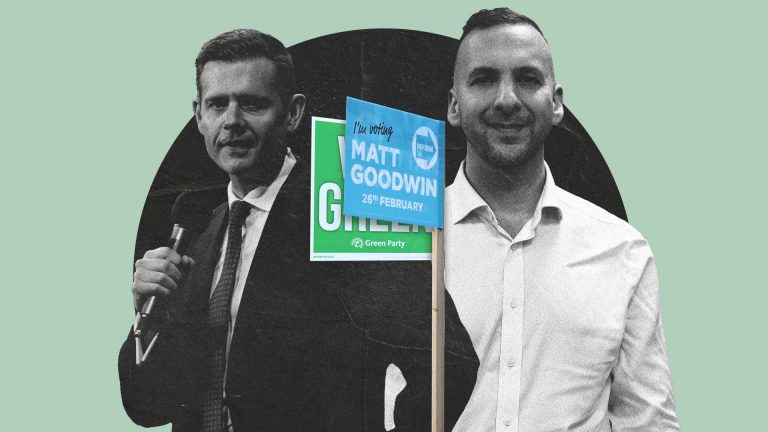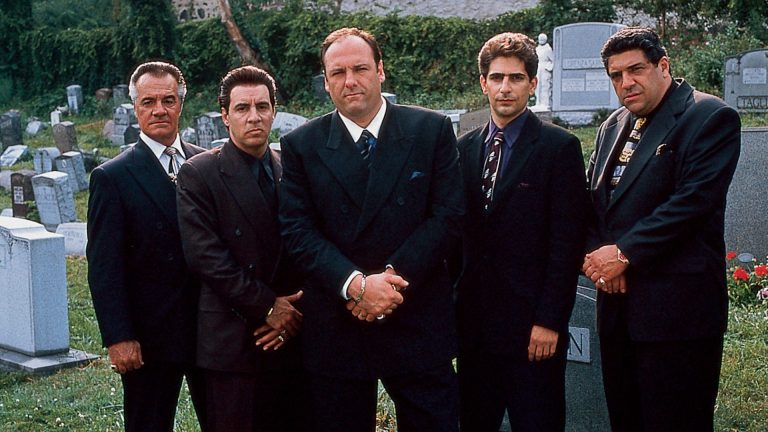There is an anecdote from Get In: The Inside Story of Labour Under Starmer – an account of Keir Starmer’s rise to the premiership, by journalists Gabriel Pogrund and Patrick Maguire – which Labour MPs bring up, unbidden, with surprising frequency.
It is a striking quote in which Starmer is likened to someone sitting at the front of a DLR train in East London, pretending to drive while actually having nothing to do with the operation of the train.
In the book, and when the analogy was first widely used, it was to suggest that No 10 chief of staff Morgan McSweeney was the one really in charge, with Starmer serving as a mere figurehead. But more recently, it’s being mentioned as Labour MPs try to explain their frustration with a government that appears to be operating entirely on autopilot.
Nowhere is this more apparent than in the rebellion over welfare reforms – a mismanaged defence to a mismanaged policy that now threatens the position of McSweeney – and perhaps even Starmer himself. Long-time opponents, horrified new MPs and frustrated ministerial colleagues are lining up to brief against one or both. Starmer is now preparing to water down the cuts in his welfare bill to try and placate those rebellious MPs.
“Everyone is selling shares in Morgan,” one ‘Labour veteran’ told the Financial Times, with another telling the Times that No 10 was “extraordinarily arrogant and complacent” and McSweeney was guilty of “shambolic political management.” More serious in the long term is the view of another MP, who told Radio 4’s Today programme that the prime minister was now “neither feared nor admired.”
Put simply, Labour MPs believe the government locked itself into a bad policy, and then methodically continued it in the worst way possible for no good reason. Many of the rebels are convinced that there are good arguments for broader welfare concern. They believe the increase in spending on disability benefits is unsustainable, and even agree that more can be done to help some disabled people work, and that this can be done in such a way that is better for everyone involved.
Suggested Reading


Will the welfare cuts rebellion finish Morgan McSweeney?
But almost no-one on the Labour benches believes the government’s proposals accomplish any of these: more than one Labour MP who has not yet signed the amendment against the government’s proposals has privately admitted they are only doing so because they believe the battle against it has already been won, and so there is no need for them to appear disloyal – they are saving themselves for future battles.
The welfare cuts at the heart of the row are relatively small: £5 billion sounds like (and is) a lot of money, but it is only around 0.5% of government spending. These were fast-tracked out of a planned broader reform of welfare spending when Rachel Reeves was looking to balance the books ahead of the Spring Statement – the government needed to find savings to offset lower growth forecasts, or it would miss its fiscal rules. This was what it came up with.
That set everything off on a bad note: MPs, campaigners, and policy experts all pointed out that the primary aim of the reforms was not to fix the system, but to find what could deliver ‘scoreable’ savings at short notice – because it was.
Once the savings were on the Treasury spreadsheets, the government was largely locked in. It promised to introduce some reforms to address the concerns of Labour MPs, but these were always going to be superficial.
Things were made worse when the government made the decision to make the bill a “money bill” – meaning it was restricted so issues of spending. This means that if the bill passes the Commons, it cannot be blocked or amended by the Lords, but this came at the price of limiting any ability for the bill to contain policy reforms.
Essentially, the government rushed through a policy on a critical issue to the lives of hundreds of thousands of disabled people in order to meet its fiscal rules. It continued even after campaigners flagged that some families could stand to lose £10,000 a year overnight. It promised concessions but didn’t follow through with them. And then it was, somehow, surprised by the backlash.
Labour backbenchers are more bemused by – and perhaps despairing of – No 10 than they are angry at it. They simply cannot believe this is where they are less than a year into office, and they also feel like they have a much firmer grasp on the politics of the situation than Starmer and McSweeney do.
As Downing Street staffers variously warned MPs that the government would make the welfare bill a “confidence vote” or else strip rebels of the whip, several verbally shrugged – they just didn’t find the threats even slightly credible.
Suggested Reading


Will Farage be prime minister? Really?
“I think they need a cup of chamomile tea and a chat,” said one usually loyal backbencher of No 10, dismissively. Another veteran backbencher said the threats weren’t even coming from the whips’ office, but instead from staff inside Downing Street, so that they would be easier to back down from later.
This dismissiveness might be even more corrosive for the government than anger. No 10’s political operation is widely regarded as dismal. MPs feel like they would get substantially more attention from Starmer and McSweeney if they were members of Reform than Labour.
They have little confidence in either the instincts or the ability of Starmer’s operation. More than one noted that the welfare cuts here weren’t even central to the government’s plans. It was a way to save a few billion pounds, for which no-one spotted the issues early, and so it continued… as if on autopilot. The prize for the government winning would be getting to see huge damage to disabled families whose personal finances are sacrificed to slightly prop up those of the government. No-one really understands how they’ve ended up here.
Any sense that McSweeney has a plan, or a great destination in mind, has gone. Fewer people speak of him as the real driver of government any more. But there is little talk of anyone else displacing him.
The government is operating like a train entirely on autopilot: moving on rails, with no-one at the console, and completely unresponsive to anyone on board. And so far as anyone can tell, it’s heading right for a wall.









